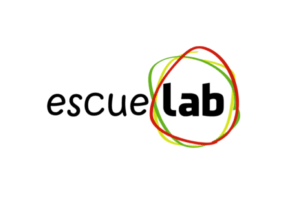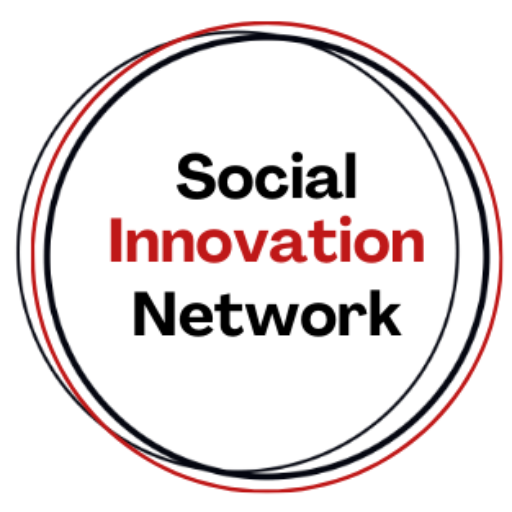The importance of social entrepreneurship is so relevant because its projects seek to solve the most important social issues and to find ideas that bring about large-scale change. It is not just about producing more, it is about revolutionizing the way we produce.
What is the social entrepreneurship?
Social entrepreneurship is all those business strategies implemented by for-profit or not-for-profit companies or organisations with the primary objective of providing solutions and solving social, environmental or cultural problems.
Social entrepreneurship is known as the Fourth Sector as it is in the middle of the public sector, the traditional philanthropy sector (seeking impact without making money) and traditional business (focused primarily on maximizing financial returns).
While the creation of a traditional venture or business is woven from a market opportunity, a social venture is usually born from an impact opportunity, and the recognition of an unjust reality that it seeks to transform. When a social enterprise seeks to maximize profitability, it is in order to maximize impact.
![]()
Social entrepreneurship and Corporate Social Responsibility are the same?
It is important to understand the difference between social entrepreneurship and companies that take corporate social responsibility (CSR) strategies, since in the first case the business activity in itself implies social actions, while in the second case social actions are taken on a secondary basis that arise as a result of their business activity, being therefore the primary objective and from which the different economic activity arises.
Who is a social entrepreneur?
A social entrepreneur seeks to make a positive change in the world through his or her venture. This drive to make a positive impact is what motivates them and guides their decisions. However, they also seek to make their venture economically viable (like any other venture).
Characteristics of social entrepreneurship
Social entrepreneurship usually have certain characteristics, bearing in mind that each venture is different and that these characteristics will be stronger in some ventures and not so visible in others.
In general, social entrepreneurship has these aspects:
- Creates a positive impact on the world.
- Seeks to match an impact opportunity with a market opportunity.
- Identifies a target population to impact.
- Makes decisions with impact in mind.
- Seeks to generate profitability/economic value.
- Prioritizes profit investment in the organisation.
Social entrepreneurship in Spain: on the rise, but well below the European average

One of the main problems in this area is the lack of funding. Precisely because of its social objective, traditional investment and its mechanisms do not fit the new paradigm.
This is why new financing tools must be created and, at the same time, awareness must be raised that social entrepreneurs can also generate economic profitability in addition to job creation and their positive impact on society.
Is social entrepreneurship difficult in Spain?
Generally speaking, people who want to engage in social entrepreneurship in Spain are going to face four ‘enemies’ that they will have to deal with.
- Access to finance:
The most common in cases of social entrepreneurship is the use of their own funds to finance the project. This means that, on occasions, the initial investment is not large enough to start the initiative with all the needs covered and ends in failure, leading to the dissolution of the company.
Social entrepreneurs may also resort to sources of funding such as crowdfunding, the most common source of external subsidies. As social entrepreneurship ideas do not seek economic profit as their main goal, it is more difficult for private banks to support them.
- The problem of staffing:
Most social entrepreneurship projects encounter difficulties when it comes to hiring employees who are loyal to the idea and assume that, sometimes, the economic benefits will take time to arrive.
The lack of financial resources discussed in the previous point means that entrepreneurs pay their workers lower salaries than those offered by commercial companies, something that not everyone is willing to accept. It is common for social entrepreneurship to employ people from the group they are trying to help.
- The shadow of ignorance:
The lack of knowledge about social entrepreneurship means that it is seen by private investors as not very stable. For the time being, the Spanish education system has not included in its curricula a specific methodology for this new form of entrepreneurship that provides sufficient skills to start it up with minimum risk.
- Lack of a specific legal framework:
As is the case in the education sector, not much attention has been paid to social entrepreneurship in the legislative sector either. The lack of regulations in this respect contributes to it being seen as an unstable and unreliable project.
6 success stories of social entrepreneurship in Spain
Despite all of these difficulties, there are many success and inspiring business ideas and stories of social entrepreneurship in Spain.
- AUARA:
This company aims to end the lack of drinking water that affects more than 700 million people. To this end, they sell bottled water and allocate 100% of the dividends to developing projects to provide access to drinking water for those affected. These projects consist of building wells, storage tanks and sanitation areas, thus reducing famine, reducing disease, increasing hygiene, boosting schooling and supporting women’s independence.

With the profits obtained from their business model, they have managed to provide access to drinking water and sanitation to more than 48,000 people in more than 17 underdeveloped countries. To achieve this, they have already built more than 80 infrastructures, enabling them to provide more than 48 million liters of water.
- L’ESTOC:
This company is a social cooperative that produces and designs furniture from recyclable materials with workers with intellectual disabilities. Its aim is therefore to put an end to polluting waste and integrate people with disabilities into society.

This project was born after detecting that in Catalonia there were 378,000 people with disabilities but only 78,000 of them were active. In addition to a salary, it offers them the possibility of doing stimulating activities that encourage creativity. In this way, they also manage to give visibility to the abilities and skills of people with disabilities.
- ESCUELAB:
This social project offers young people the opportunity to have access to quality science education through innovative, practical and interactive experiences that encourage scientific vocation.

Its aim is to offer all children, regardless of their socio-economic status, activities that foster their interest in science. To this end, they offer scholarships that allow children at risk of social exclusion to participate. They also place great emphasis on encouraging girls’ interest in science, as only 26% of women study engineering and in degrees such as Science, Mathematics or Computer Science, the number of female students does not reach 50%.
- AYÚDAME 3D (HELP ME 3D):
This organisation offers 3D printed arms to people without resources anywhere in the world. Its aim is to improve employability and schooling by reducing inequality. They also participate in talks at schools to promote social work among young people and to raise awareness of the benefits that technology can offer.

It is also noteworthy that during the Covid-19 pandemic they decided to use their 3D printing machinery to produce health material.
- L’OLIVERA:
This company produces wines and oils in an ecological way and incorporates among its employees people with mental disabilities, especially those with more disadvantaged social situations, who actively participate in the production process.

The objective is to achieve their personal and social promotion, through a normal integration in the common life, work and relations with the village and the region where the wine and oil are produced.
- ECODEME:
This company designs and builds ecological housing. They are completely recyclable houses that manage to reduce environmental impact and energy consumption by up to 40%. Its aim is to contribute to the sustainable development of the planet.

All these cases presented have very different proposals and business models despite having a common final objective, social, environmental or cultural sustainability. It is important to highlight that, like practically all companies, in their beginnings, they had to face different obstacles, such as finding the right financing, making the plan scalable and economically sustainable, knowing how to make the value proposition known, detecting how to build customer loyalty, finding their market niche, knowing how to structure the business plan properly, etc.
That is why, if you are a social entrepreneur, whatever your business objectives are, it is essential to understand the importance of training for entrepreneurship in order to be able to do it successfully and not fail in the attempt.

Images:
https://pixabay.com/es/vectors/infograf%c3%ada-plantilla-lanzamiento-5925300/ by Trang Le






